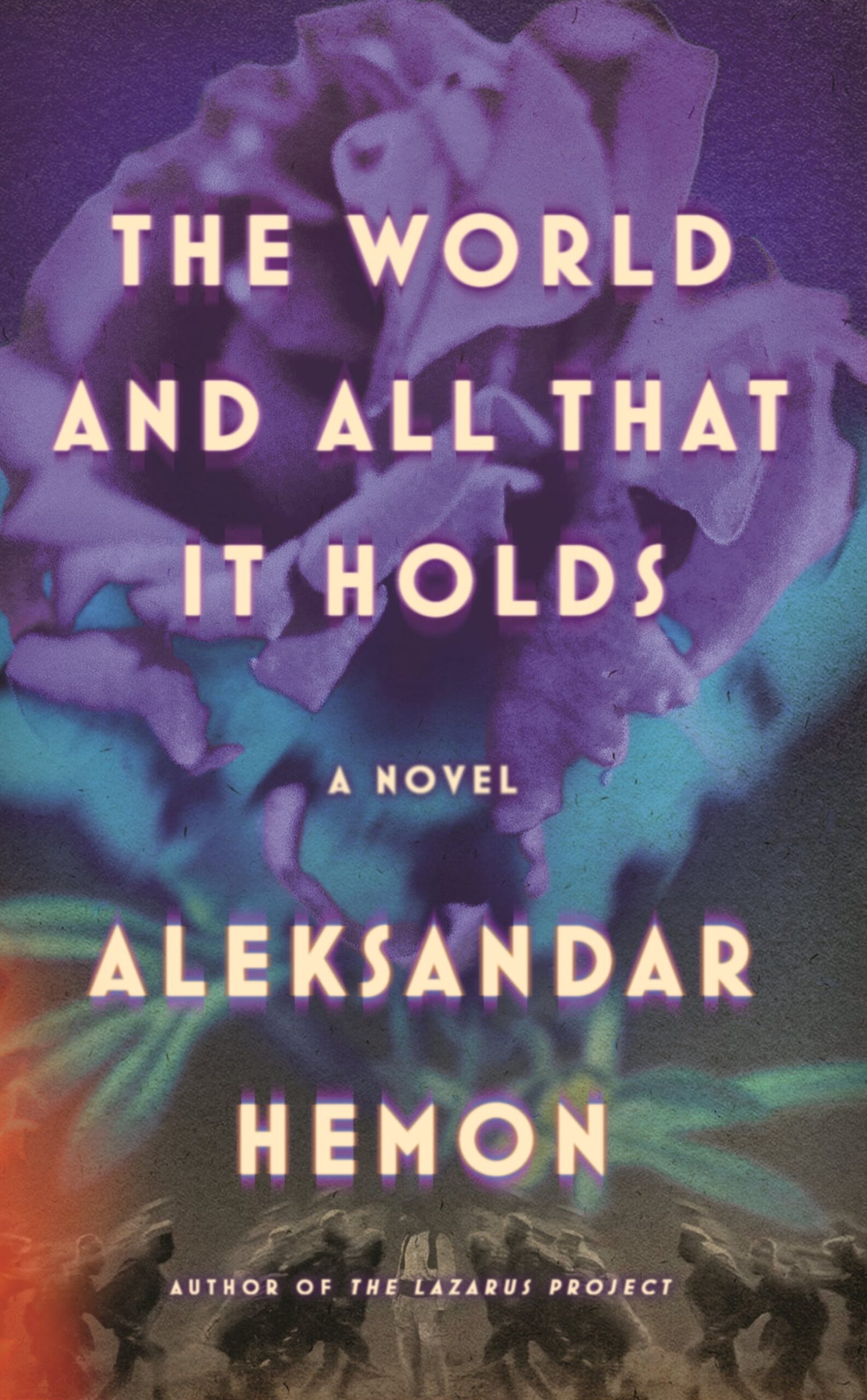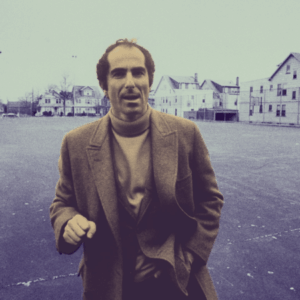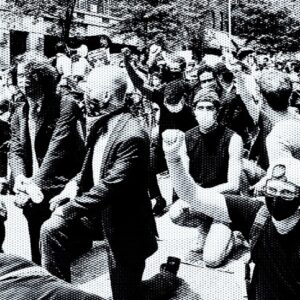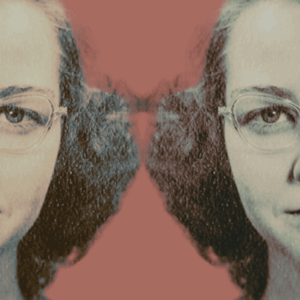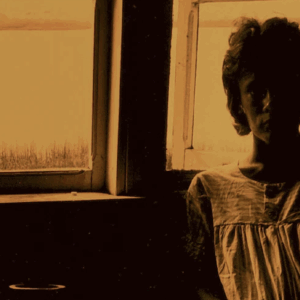SARAJEVO, 1914
The holy one kept creating worlds and destroying them, creating worlds and destroying them, and then, just before giving up, He finally came up with this one. And it could be much worse, this world and all that it holds, as I certainly know how to get my hands on some interesting stuff around here. Let’s see: lapis infernalis, laudanum, next to it, lavender.
Pinto took the laudanum off the shelf, knocking over the lavender tin, which miraculously did not break open when it hit the floor. He released a drop of laudanum onto a sugar lump, watched the brown stain bloom, then placed it in his mouth. While the sugar and bitterness dissolved on his tongue, he picked up the lavender, dipped his nose into the tin, and inhaled—vast Mediterranean flower fields stretched inside him, the blue sea lapping at his soul, a turquoise sky and swallows floating above it all, the laudanum sailing on his blood all the way to his mind, and then beyond. To all the things created at twilight on the Šabat eve, the Lord wisely added laudanum, just to help make everything more beautiful and bearable.
After a drab, rainy week, the morning was sunny and the light broke through the windows as never before, rearranging the checkered floor into unprecedented patterns. The sugar was now completely dissolved but the bitterness lingered, tickling his tongue. God wrapped Himself in white garments, and the radiance of His majesty illuminated the world, and right here on the floor of the Apotheke Pinto we can now behold a little patch of one of those very garments. There might be a poem for me to write about the light shifting and altering the visible: God’s Garments, it could be called. But then, who would ever care about any of it, no one cares about light and what it does to the soul, not here in this city behind God’s back.
Ever since Vienna, Pinto had been writing poetry in German; he wrote in Bosnian too, but only about Sarajevo. He even tried to write in Spanjol, but that always felt like his Nono was writing it, everything always sounding like an ancient proverb: Bonita de mijel, koransiko de fijel; Kazati i veras al anijo mi lo diras, and so on. Whereas light is everywhere and nowhere. It exists, but never by itself, always a garment, just as God is knowable only in the imperfection of His Creation. Even darkness is clothed in light; light makes itself present by its own absence. We carry the darkness inside and return it to the light when we die. That could sound good in German. Im Inneren tragen wir das Licht, da wir, wann wir sterben, zurückgeben der Finsternis.
He put the laudanum and lavender up on the shelf. The opiatic ease set in, slowly, like a deep breath, while he studied the floor smeared with shadows from letters in the window. apotheke pinto. He should finally get rid of all the silly herbs Padri Avram had bought from peasants and collected for decades. Padri had insisted that all that junk be moved from the old drogerija in the Čaršija and put up alongside the actual medicine, which he had derisively called the patranjas. But, moved though they may have been, all those obscure, old-fashioned herbs were now dry and dead, their ancient, cumbersome Turkish names (amber kabugi; bejturan; logla-ruhi) sticking out in the neat alphabetical order of the patranjas, which Pinto had established after the move. He didn’t even know what they were for, those magic herbs. In the old place, only Padri knew where to find things and what the principles of classification were—the drogerija had really represented the interiority of Padri’s head, all the books and the prikantes and segulot and basme on the shelves, and the burntsugar scent of the halva he had with coffee, crawling against the ceiling, the clouds of tobacco smoke as dense as his thoughts. Those ancient peasants of his still came by the Apotheke sometimes, clad in their sheep-stink clothes and animal-hide footwear, with their random ripe boils marring their mountain veneer, with their untold diseases, gnarled bones, and rotten teeth. They’d enter and look around as if they’d just disembarked from a ramshackle time machine, disoriented by the camphor smell and the serene medicinal quiet and the marble floor, awed by Emperor
Franz Joseph’s baroque backenbart in the picture they could not fail to see. Only Nono Solomon’s picture on the opposite wall, dating from the last century, assured them they actually were where they were meant to be: they recognized Nono’s fez, his furrowed brow and stately white beard, even his kaftan adorned with a medal on his chest, pinned once upon a time by none other than a representative of the Sultan Abdul Hamid himself. The peasants would ask for the old Jewish hećim, and Pinto would have to tell them that the old hećim was dead and gone, and that he—Doktor Rafo to them—was now the rightful heir of this medicinal little empire and that the only herb he would ever be interested in buying from them was lavender. But there was little lavender in the grim mountains around Sarajevo, so the peasants returned unrewarded to their thick and ancient forests, where they lived and copulated with wild beasts, and never came back to the Apotheke Pinto, which was just as well. Because we now lived in a brand-new century, progress was everywhere to behold, the future was endless, like a sea—nobody could see the end of it. No one cared about bejturan anymore. Amber kabugi was probably something that summoned ghosts or killed witches and vilas, made your teeth fall out, caused a never-ending erection. Well, that wouldn’t be half as bad.
The morning had started with a cannon salvo, welcoming to our beloved Godforsaken city the Archduke Franz Ferdinand von Österreich-Este, Heir Apparent to the Habsburg Empire and Inspector General of the Imperial Armed Forces, accompanied by Her Highness the Duchess. Now there was another boom, an extra welcome to His and Her Highness. (Only later that day would Pinto find out that the boom had been caused by a hand grenade a hapless young assassin had hurled at the Archduke’s car. I can confirm, from personal experience, that we are always late to the history in which we live.) Across the street, Hadži-Besim had hung the imperial banner above his tobacco shop as per Governor’s order, and presently stood under it, his thumbs stuck in the vest pockets, the top of his claret fez nearly touching the black-and-yellow rag with the stiff Austrian eagle in the center. But the colors were pleasingly aligned, and the smooth rotundity of Hadži-Besim’s stomach was just as pleasant. Laudanum helps the world be snug inside God’s garments. Pinto realized he should’ve put the banner above the door as well; he was planning to, never got around to it; there were so many banners all over the city, nobody would notice the absence of his. Nono Solomon and the Emperor frowned at him from their opposite walls, rebuking him with their aged and stolid wisdom for his negligence, and for many other things as well; they watched him all the time, the mighty old men. This was a century of progress; great things were coming our way. Remember the future! The Archduke Franz Ferdinand von Österreich-Este, Heir Apparent to the Habsburg Empire, himself came to Sarajevo to see how we live, and tell us how we can live even better.
__________________________________
Excerpted from The World and All That It Holds by Aleksandar Hemon. Published by MCD an imprint of Farrar, Straus and Giroux. Copyright © 2023 by Aleksandar Hemon. All rights reserved.









